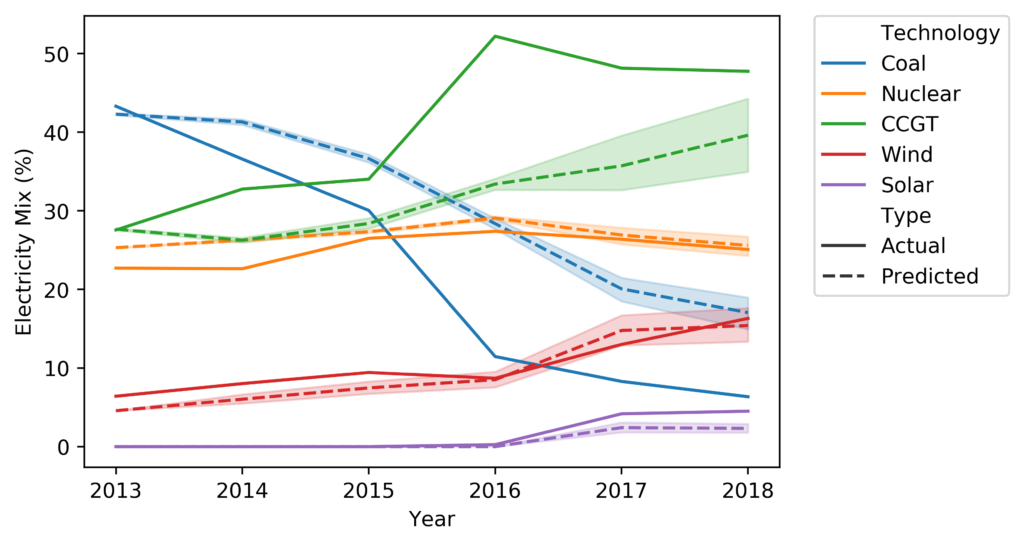Climate change has been getting a lot of publicity recently, and rightly so. We are encouraged to change our eating and travelling habits and hope for a rapid improvement in renewable technology. However, how can we understand the best actions to take and have a better understanding of what is to come?

Energy systems modelling is a tool which has been used to analyse precisely these questions. They allow decision makers, stakeholders and the public to gain a better understanding of what needs to be done to reduce emissions.
Energy systems modelling is different to traditional machine learning techniques such as deep neural networks. The interactions between factors such as domestic and international policy, technology advancements and efficiency improvements are typically too complex to be modelled by these tools. This is where scenario modelling comes in. A number of different ‘what-if’ scenarios can be formulated and the results analysed to give people a better understanding of how these factors interact.
There are multiple different energy models and methods, both open-source and proprietary. From optimisation models such as a MARKAL/TIMES developed by IEA, OSeMOSYS, an open-source model developed by different institutions such as UCL, to agent-based models such as EMCAS and ElecSim. Disclaimer: ElecSim is an open-source tool being developed by myself!
Starting from a simple scenario file one is able to craft their own scenarios via setting their own carbon taxes, electricity prices, generation technologies and subsidies. However, how can one be certain that the outputs mimic real-life? An important question, and one that we hope to answer.

For this end, we set up a simple experiment recreating the policies, prices and companies in the United Kingdom between 2013 to 2018. We then compared the real-life electricity mix to the predicted electricity mix using the ElecSim model.
The figure shows that, whilst we were unable to precisely predict investments over a 5 year time-span, the general trends are evident. This provides some confidence in the models we use day to day and allows us to make decisions with slightly more certainty.
For more information on ElecSim, read the paper published at The Tenth ACM International Conference on Future Energy Systems (ACM e-Energy) here
